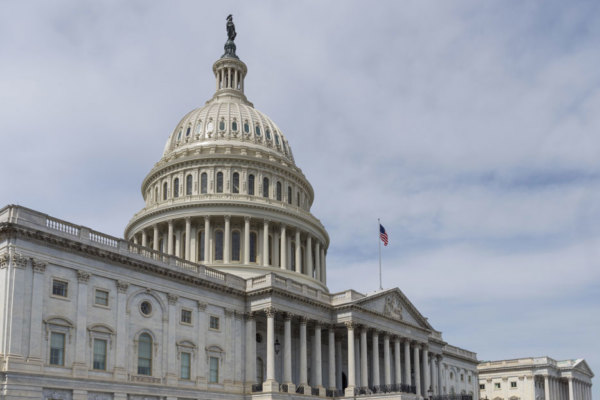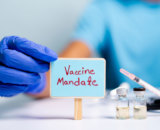On Sept. 9 the Biden Administration released a new, six-pronged national strategy to combat COVID-19 amid the surge in cases driven by the highly transmissible Delta variant. According to the document, several regulations aimed at increasing the number of vaccinated individuals are already in development.
The Occupational Safety and Health Administration (OSHA) will require all employers with 100 or more employees to ensure that their workforce is fully vaccinated or require any workers who remain unvaccinated to produce a negative test result on at least a weekly basis before coming to work, as well as require employers to provide paid time off for vaccination and recovery (with a fine of up to $14,000 for non-compliance).
Very little additional information is available at this time, and as more clarity becomes available NATSO will keep you updated.
OSHA appears to be in the process of drafting a formal regulation to implement this requirement. It is safe to assume that once a rule is proposed and there is an opportunity for public comment, the rule could be finalized as soon as 60-90 days from publication. If a rule is proposed formally some time in September, for example, it would be finalized some time before the end of the year.
However, the White House also said that the rule will be implemented "in the meantime" through an "Emergency Temporary Standard" that will also require paid time off for vaccinations. OSHA would publish this emergency temporary standard in the Federal Register, where it also serves as a proposed permanent standard. In other words, the vaccine requirement may take effect far sooner than would generally be the case for a notice-and-comment rulemaking.
Under certain limited conditions, OSHA is authorized to set emergency temporary standards that take effect immediately and are in effect until superseded by a permanent standard. OSHA would have to determine that workers are in grave danger due to exposure to toxic substances or agents determined to be toxic or physically harmful or to new hazards and that an emergency standard is needed to protect them. The rule must also be feasible for employers to enforce. The standard would preempt existing rules by state governments, except in states that have their own OSHA-approved workplace agencies. States with their own agencies have 30 days to adopt a standard that is at least as effective as the OSHA standard. Montana is currently the only state that prohibits employers from requiring vaccines.
This approach will undoubtedly face litigation. Lawsuits will likely be brought by employers and potentially states. It is difficult to assess the viability of these lawsuits until we have more details on OSHA's plan. This appears to be the nation's first vaccine mandate ever applicable to private employers, so there is little precedent to draw upon. It is risky, however, to assume that this obligation will be struck down by a court or not take effect for several months. OSHA has in recent months issued various temporary emergency standards to address COVID-19, but none have been as far-reaching as employer vaccine mandates.
In the meantime, companies would be well-advised to seek legal advice and begin crafting a mandatory vaccine policy (with the option for weekly testing if that's the employer's preference) that provides for exemptions for people with qualified disabilities under the Americans with Disabilities Act and for people with sincerely held religious beliefs as defined under Title VII of the Civil Rights Act. Whatever standard OSHA promulgates may set the standard for what a "reasonable employer" should be doing to combat COVID, so non-compliance could potentially generate civil liability exposure if vaccinated employees contract COVID in the workplace.
One of the primary potential challenges at this early stage is how employers can gather and store vaccination information, as well as the process and verification system for exemptions.
Some observers have told the press that they think these policies should give comfort to private employers who have been hesitant to require vaccines for fear of losing talent in an already tight labor market. The White House announcement and the associated publicity will also enable employers to deflect employee consternation away from the company by pointing to the federal mandate as a justification for any new policy.
The U.S. Chamber of Commerce said in a statement that it "will work to ensure that employers have the resources, guidance and flexibility necessary to ensure the safety of their employees and customers and comply with public health requirements." The Business Roundtable said it "welcomes" the Biden Administration actions, including the requirement that companies offer paid time off for workers to get vaccinated.
Subscribe to Updates
NATSO provides a breadth of information created to strengthen travel plazas’ ability to meet the needs of the travelling public in an age of disruption. This includes knowledge filled blog posts, articles and publications. If you would like to receive a digest of blog post and articles directly in your inbox, please provide your name, email and the frequency of the updates you want to receive the email digest.

